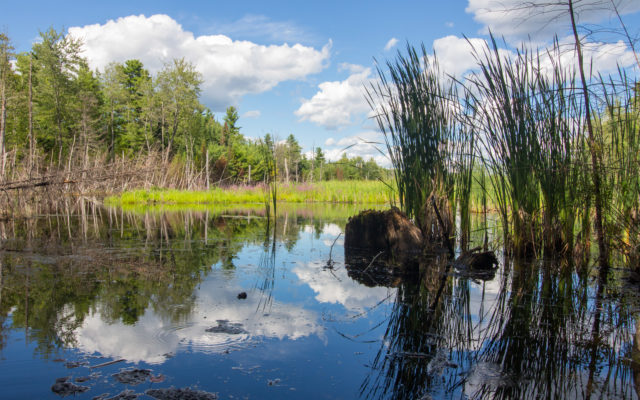
For the good of Maine, the Land and Water Conservation Fund must be fully funded
One of the greatest gifts Maine could receive this holiday season is full and dedicated funding for the Land and Water Conservation Fund to be included in the fiscal year 2020 federal budget.
LWCF enjoys wide bipartisan backing and is our nation’s most important program to conserve irreplaceable landscapes and cultural heritage sites. The fund has played a vital role in Maine, providing more than $43 million for our local and state parks, and recreation areas, in addition to supporting sites of national significance such as Acadia National Park and the Appalachian National Scenic Trail.
In a remarkable and long-awaited event, the John D. Dingell, Jr. Conservation, Management, and Recreation Act was signed into law in March 2019, permanently reauthorizing LWCF. This momentous step provided no assurance for future dedicated funding, however. And while both a Senate and House subcommittee have advanced legislation to fully fund LWCF, there are no guarantees.
Every year, LWCF funds that would benefit Maine and other states have been siphoned off by Congress and diverted elsewhere for purposes that have nothing to do with conservation. In fact, the full $900 million level has been met only twice during the program’s more than five decades of existence. Permanent, dedicated funding would take LWCF out of the appropriations wrangling once and for all, and more fully protect important wildlife habitats, provide more places for sports and outdoor recreation, and ensure that we will always have places for future generations to enjoy the great outdoors.
Throughout my 38-year-career with the National Park Service, 12 of which I spent as superintendent of Acadia National Park, I have seen firsthand the value and importance of LWCF. Hunting, fishing, camping, climbing, hiking, paddling, backcountry skiing, mountain biking, wildlife viewing and other outdoor recreation opportunities have benefited from LWCF funds.
According to the Outdoor Industry Association, LWCF has contributed $8.2 billion annually to Maine’s economy, supporting 76,000 jobs. In Penobscot County alone, LWCF’s benefits can be readily seen and enjoyed. Projects receiving funding from LWCF include Penjajawoc Preserve, Bangor Waterfront Park on the Penobscot and Kenduskeag Stream Park featuring a bit of the wild near Bangor’s center. In all, 87 projects in the county have received over $4 million to date.
It is abundantly clear that full funding of LWCF will be beneficial for Mainers, and for all Americans.
I thank Sen. Susan Collins for her support of LWCF and urge her to continue to advocate strongly for full funding. Congressional leadership must come to a deal to fully fund LWCF during the current end-of-year budget negotiations before we reach the Dec. 20 deadline.
I also encourage you to reach out to your congressional representatives and express your support for full and mandatory funding for LWCF. The 116th Congress has an important opportunity to finally fulfill Congress’s original promise to fund LWCF at the full amount of $900 million annually by year’s end. If ever there was a perfect opportunity for bipartisan accomplishment, this is it.
Sheridan Steele, a part-time resident of Mount Desert, is a former superintendent of Acadia National Park and St. Croix Island International Historic Site. He is a member of the Coalition to Protect America’s National Parks.